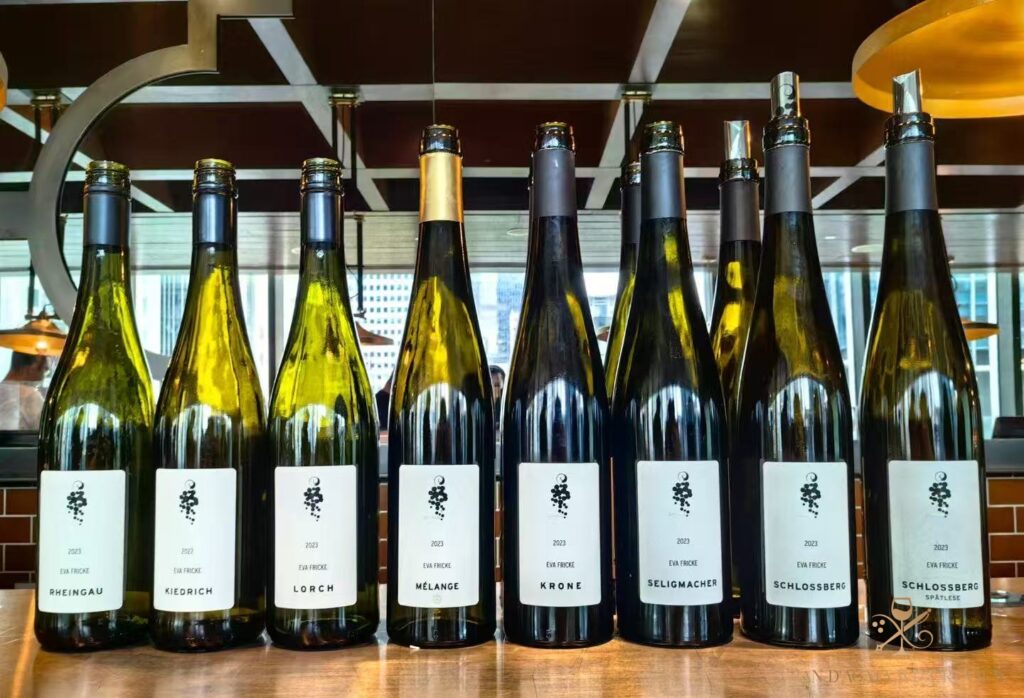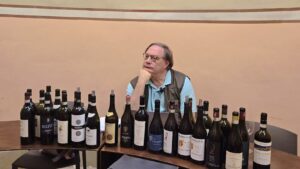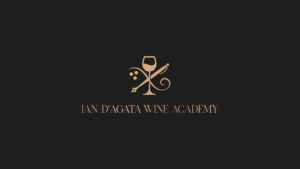In 2006, Eva Fricke leased a vineyard of just 0.2 hectares in Lorch, at the western edge of the Rheingau. The first vintage yielded only 600 bottles. At the time, few would have considered this a promising beginning: Lorch lay outside the “golden mile” of the Rheingau, with steep slopes, a cool climate, and high cultivation costs, where many vineyards had long been abandoned. Yet Eva saw the potential—the soils of grey slate and quartzite, combined with the cool microclimate, endowed Riesling with piercing acidity and a mineral backbone. This forgotten land became the starting point of her dream and determination.
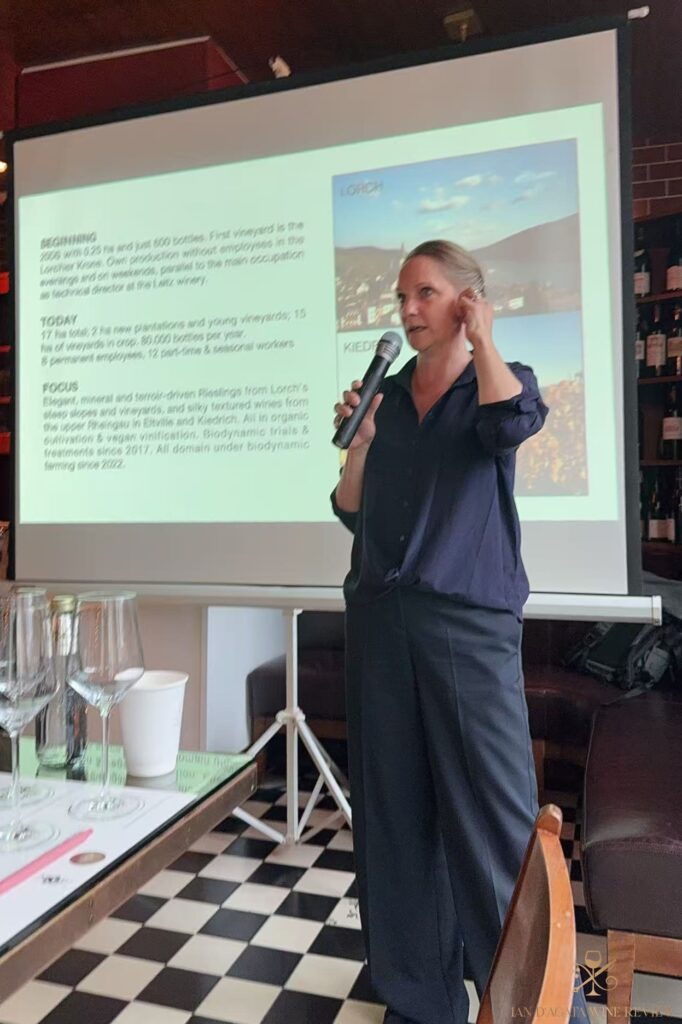
Eva was born in Bremen, northern Germany, to a family of doctors with no winemaking tradition. During her studies and early career, she chose the path of viticulture and oenology, and gained international experience through internships at Dominio de Pingus in Spain, Castello di Verduno in Italy, and in Australia. She later studied at the renowned Geisenheim University, and worked for years at J.B. Becker and Weingut Josef Leitz, gradually building her expertise and practical skills. With these experiences, she finally put down roots in the Rheingau, founding her own estate in 2006. From that initial 0.2-hectare plot, the winery has since expanded to 17–18 hectares, with a core focus on Lorch while also including Eltville, Hattenheim, and Kiedrich.
The towns and vineyards
Today Eva Fricke farms vineyards in the territories of some of the Rheingau’s most famous towns.
Lorch: The heart of the estate and Eva’s greatest focus, including renowned sites such as Krone, Schlossberg, Seligmacher, and Kapellenberg. With vines averaging over 70 years of age planted on soils of slate and quartzite, the Lorch is the estate’s signature vineyard, producing Rieslings of nobility, vibrancy, and crystalline clarity. However, because of its challenging conditions, the Lorch had long been overlooked (or perhaps people chose to look away from it), and yet Eva believed in its potential. The combination of slate soils and a cool climate, she felt, could yield Rieslings of striking elegance. With her persistence, not just hers many Lorch vineyards have been revitalized, even driving up the land value in the region.
Eltville and Kiedrich: Two vineyrds associated with some memorable, historic wines, they are characterized by mostly sandy loam and alluvial soils, famous for producing wines of greater delicacy and roundness.
The winemaking
Eva Fricke’s winemaking philosophy is consistent: respect for terroir and minimal intervention; for example, she believes that composting with horse and cow manure supports biodiversity. Her winemaking is also based upon organic and ecological farming practices. Since 2006, the estate has rejected herbicides and pesticides. In 2016, Fricke’s wine production was certified organic, and in 2017 it also received certification from The Vegan Society. Fricke also believes in using native yeasts (all her wines ferment spontaneously with native yeasts) and going about her job in as low an interventionist manner as possible. To preserve the purity and signature of site, instead of large oak casks, Eva favors stainless steel, with aging on fine lees for 4–10 months. She likes to emphasize the concept of “micro-terroir”: it is her view, not at al unreasonable, that the same grape variety can express distinct personalities from different plots. Her Rieslings are therefore precise, pure, and highly expressive of place, while remaining immensely enjoyable to drink.
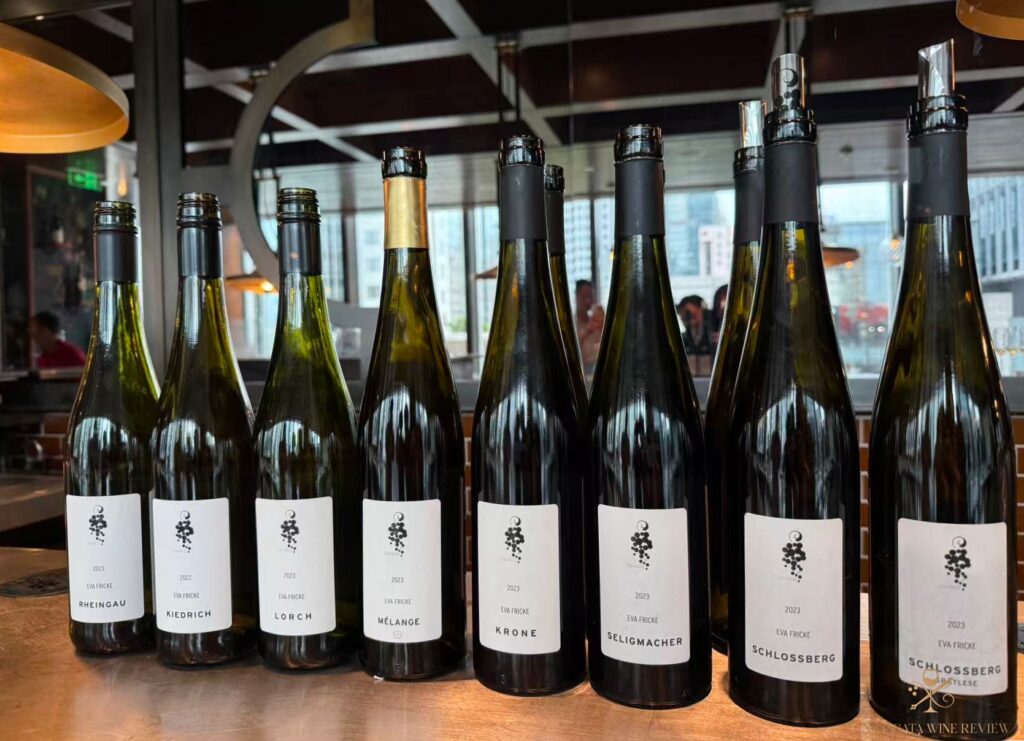
Other noteworthy points about Eva Fricke and her winery
Last but not least, Eva not only rebuilt vineyards in areas previously abandoned or forgotten but also gave her winery a broader social dimension, by being attentive to socially important aspects when running a winery. In terms of worker protection, all her harvest workers are formally contracted, ensuring fair labor practices. She engages in meritorious charity activities, actively supporting international projects such as “Combat Hunger,” donating part of the winery’s income to global anti-hunger efforts. Ecological stewardship is also important to her, with the estate collaborating with conservation agencies to protect Lorch’s cultural landscape and natural environment.
It is also worth noting that when you meet her, Eva impresses not only with her professionalism and determination, but also with her warmth, kindness, and humility. Whether speaking with vineyard workers, partners, or visitors, she remains gentle and respectful—an attitude that mirrors her philosophy of honoring both nature and people.
The wines in this tasting report
All the wines in this tasting report were tasted in Shanghai with Eva Fricke.
